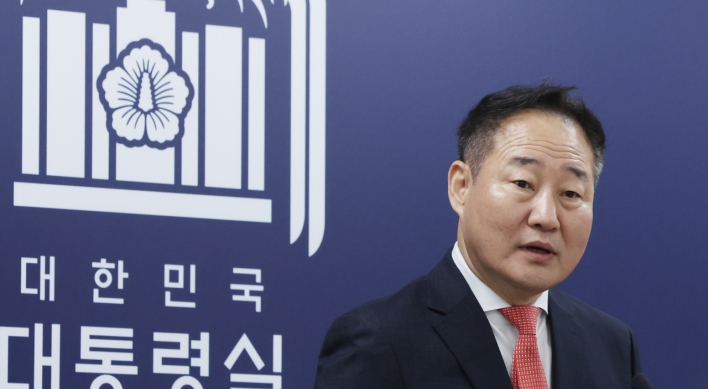[NEWS ANALYSIS] Does social media reflect voters' minds
By Yeo Jun-sukPublished : April 12, 2016 - 16:43
When 28-year-old Yoon Cheol-seung looked to the Internet during the 2012 presidential election to predict who would win the contest, the political science graduate student thought liberal candidate Moon Jae-in would beat his conservative counterpart Park Geun-hye by a fair margin.
“As far as I remember, it seemed like online communities and Internet portals were filled with supporters of the liberal candidate,” said Yoon. “After hearing the news that the turnout rate was higher than the previous election, I anticipated things would be in favor of Moon,” he said.
But the result was different. While the vocal young demographic showed their support for the liberal candidate, it was conservative Park who won.
“As far as I remember, it seemed like online communities and Internet portals were filled with supporters of the liberal candidate,” said Yoon. “After hearing the news that the turnout rate was higher than the previous election, I anticipated things would be in favor of Moon,” he said.
But the result was different. While the vocal young demographic showed their support for the liberal candidate, it was conservative Park who won.

In February this year, social media was filled with messages showing avid support for the opposition parties’ record-breaking filibuster against the government-led antiterrorism bills. Based on the number of likes, responses and shared stories encouraging the move, the opposition appeared to have won the war, although it lost the legislative battle against the majority Saenuri Party. The actual approval ratings released during the same time period, however, indicated otherwise, as more eligible voters continued to support the Saenuri Party.
The party’s relatively conservative chief Kim Chong-in seemed aware of such phenomenon, as he reportedly urged the party members to end the 192-hour-long filibuster, saying, “Some party members believe that the more noise the social media makes, the more impact it would have on the political landscape. It just shows how unorganized our party is.”
Such incidences show that public opinion expressed online does not accurately gauge the actual and overall electoral outcome.
During the 2014 by-elections held in June, the Saenuri Party defeated the opposition even though various social media platforms were filled with comments denouncing the ruling party and the government’s handling of the Sewol ferry disaster just three months prior.
“Social media’s role is limited to helping unite those who have already decided who they will support,” said Jun Kye-Wan, a political analyst at Korea’s Knowledge Center. “The platform is unlikely to hold sway over independents and undecided moderates,” Jun said.
Lee Sae-hee, a researcher from Korea University, said in his research paper that social media is an “isolated” platform for like-minded groups because it grants much more access to young liberal voters than old conservative ones.
According to statistics from his thesis titled “Comparative Analysis of Conventional and New Media’s Political Implication,” conservative voters were more exposed to conventional media such as newspaper and TV networks than social networks.
Yet the use of social media on the campaign trail appeared to be popular among the candidates. Whether they were conservative candidates or liberal ones, the politicians filled their individual websites and Facebook accounts with comments and videos publicizing their political agendas and credentials.
Some of them relied on text messages or closed methods of social networking services provided by firms such as Kakao Talk, a free messenger service provided by Daum Corp., or Naver Band, a social networking service from Naver Corp.
“Compared to a platform that is more open to the public, closed platforms such as Naver Band and Kakao Talk are more likely to sway voters because they carry information between friends who trust one another,” said Lee Taek-gwang, a professor of cultural studies of Kyunghee University.
By Yeo Jun-suk (jasonyeo@heraldcorp.com)
The party’s relatively conservative chief Kim Chong-in seemed aware of such phenomenon, as he reportedly urged the party members to end the 192-hour-long filibuster, saying, “Some party members believe that the more noise the social media makes, the more impact it would have on the political landscape. It just shows how unorganized our party is.”
Such incidences show that public opinion expressed online does not accurately gauge the actual and overall electoral outcome.
During the 2014 by-elections held in June, the Saenuri Party defeated the opposition even though various social media platforms were filled with comments denouncing the ruling party and the government’s handling of the Sewol ferry disaster just three months prior.
“Social media’s role is limited to helping unite those who have already decided who they will support,” said Jun Kye-Wan, a political analyst at Korea’s Knowledge Center. “The platform is unlikely to hold sway over independents and undecided moderates,” Jun said.
Lee Sae-hee, a researcher from Korea University, said in his research paper that social media is an “isolated” platform for like-minded groups because it grants much more access to young liberal voters than old conservative ones.
According to statistics from his thesis titled “Comparative Analysis of Conventional and New Media’s Political Implication,” conservative voters were more exposed to conventional media such as newspaper and TV networks than social networks.
Yet the use of social media on the campaign trail appeared to be popular among the candidates. Whether they were conservative candidates or liberal ones, the politicians filled their individual websites and Facebook accounts with comments and videos publicizing their political agendas and credentials.
Some of them relied on text messages or closed methods of social networking services provided by firms such as Kakao Talk, a free messenger service provided by Daum Corp., or Naver Band, a social networking service from Naver Corp.
“Compared to a platform that is more open to the public, closed platforms such as Naver Band and Kakao Talk are more likely to sway voters because they carry information between friends who trust one another,” said Lee Taek-gwang, a professor of cultural studies of Kyunghee University.
By Yeo Jun-suk (jasonyeo@heraldcorp.com)





![[K-pop’s dilemma] Can K-pop break free from ‘fandom’ model?](http://res.heraldm.com/phpwas/restmb_idxmake.php?idx=644&simg=/content/image/2024/05/09/20240509050541_0.jpg&u=20240509173751)




![[News Analysis] Yoon's first 2 years marked by intense confrontations, lack of leadership](http://res.heraldm.com/phpwas/restmb_idxmake.php?idx=644&simg=/content/image/2024/05/09/20240509050612_0.jpg&u=20240509233252)







![[Today’s K-pop] NCT’s Mark to drop 1st solo album in February 2025](http://res.heraldm.com/phpwas/restmb_idxmake.php?idx=642&simg=/content/image/2024/05/10/20240510050597_0.jpg&u=)